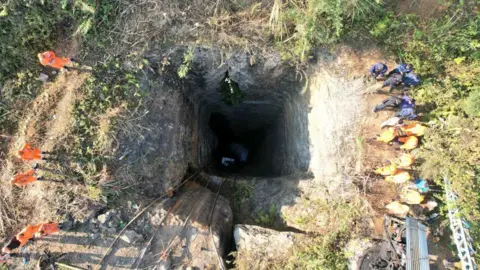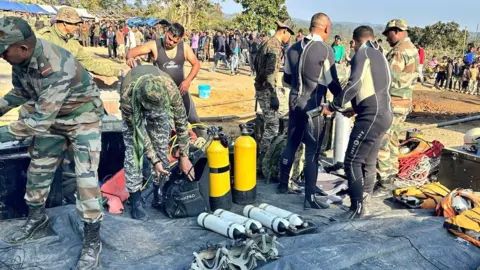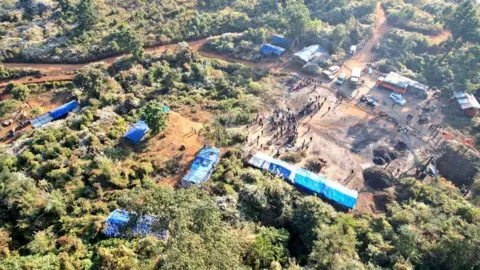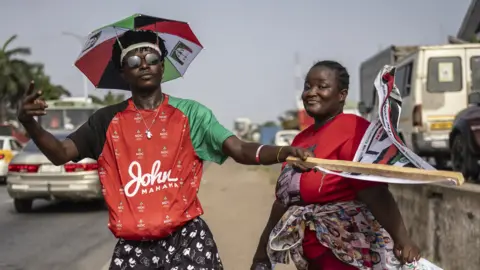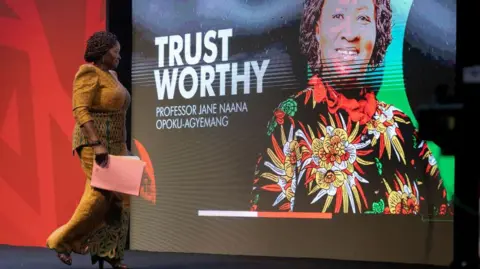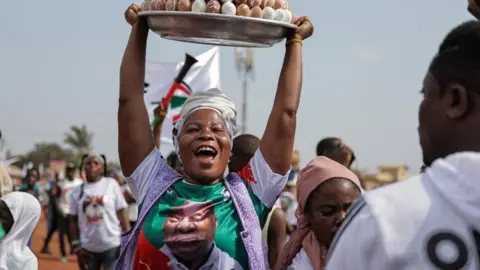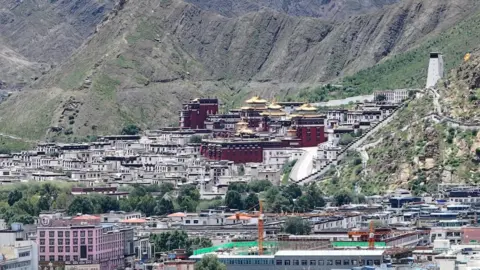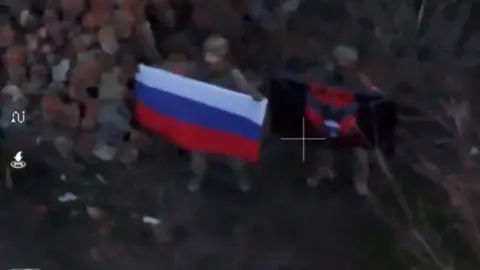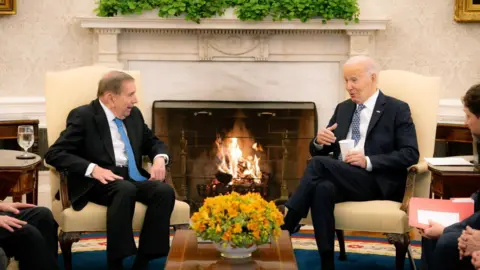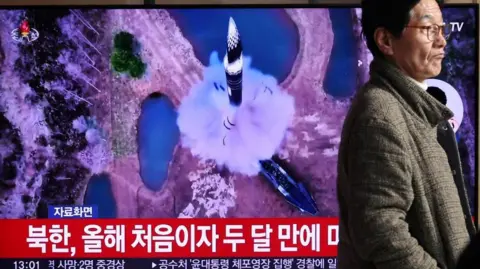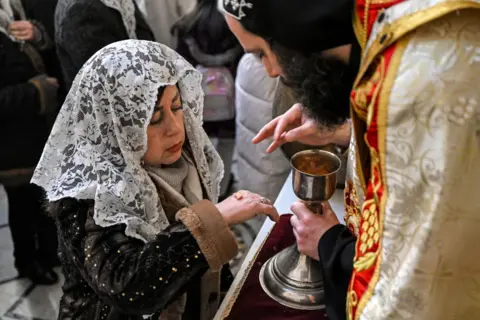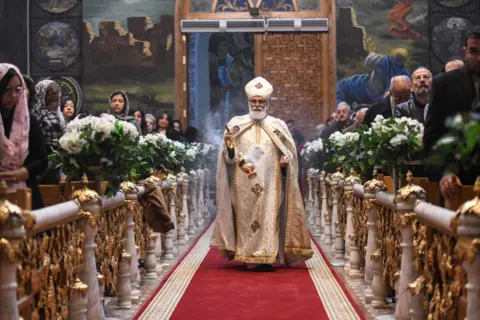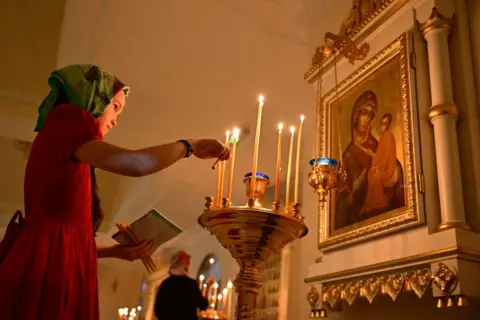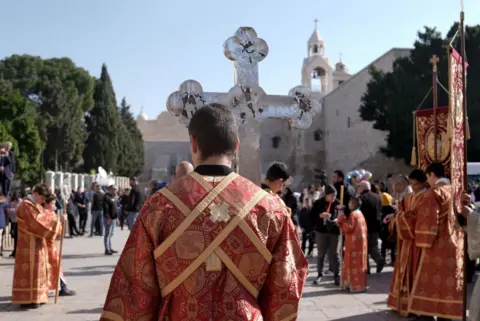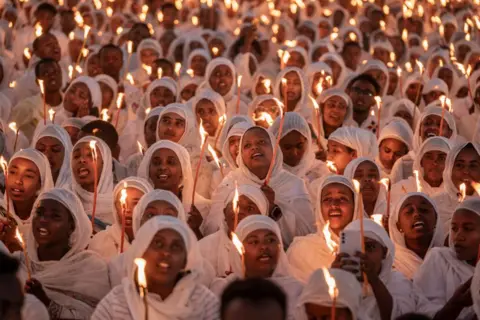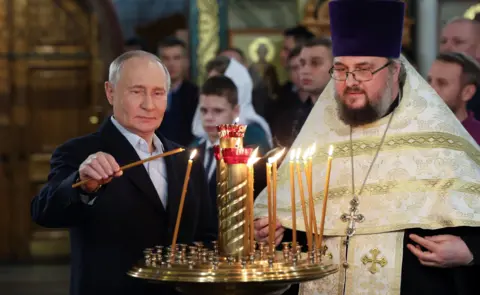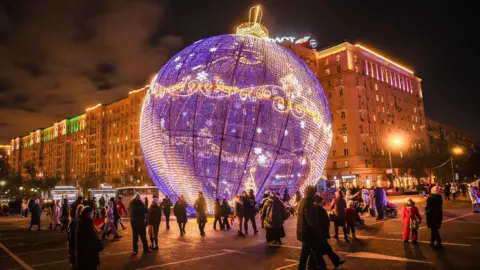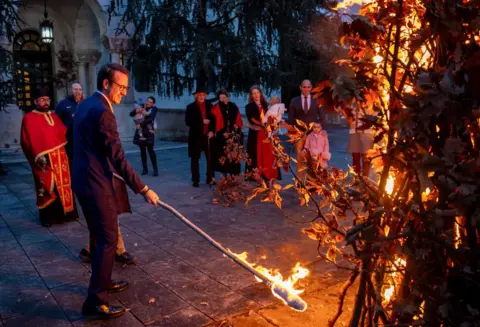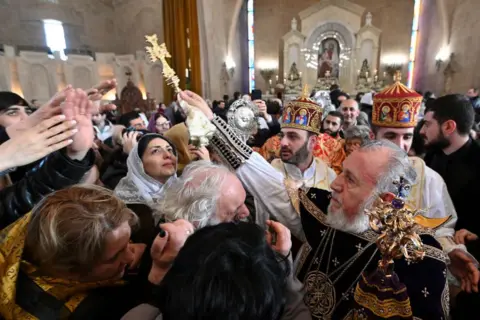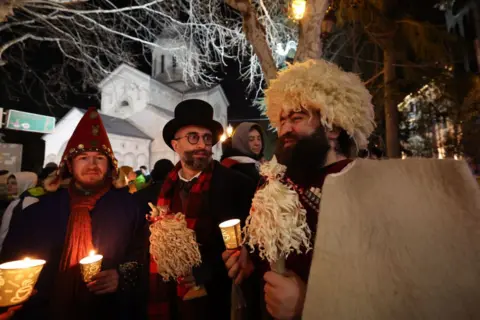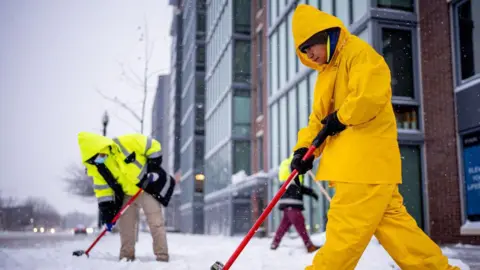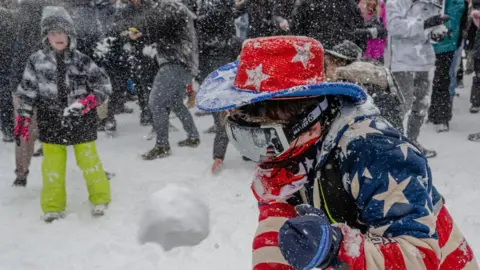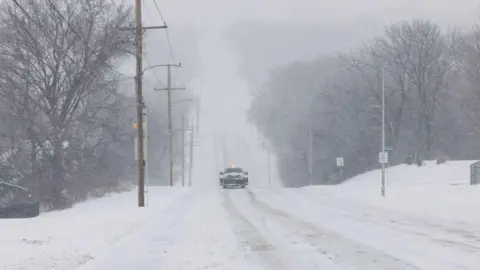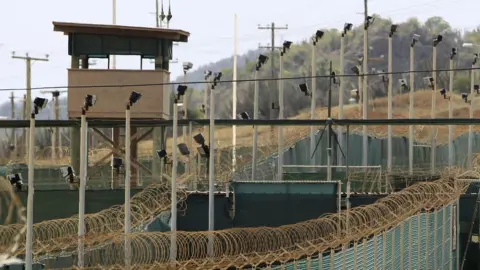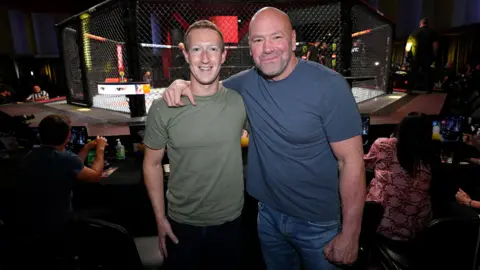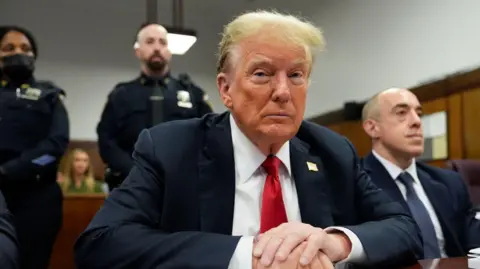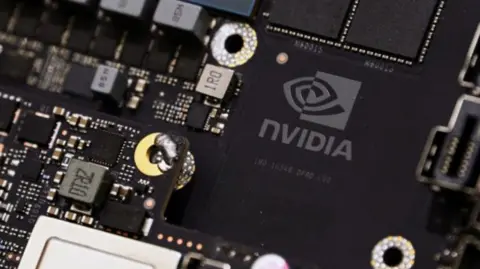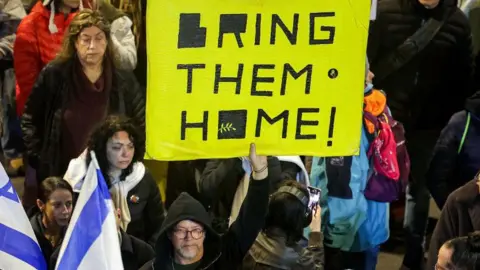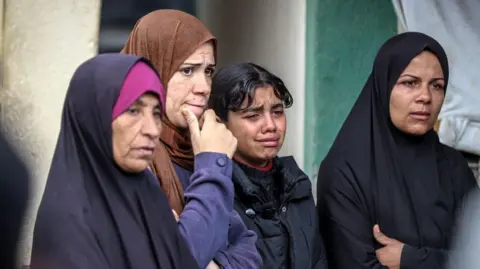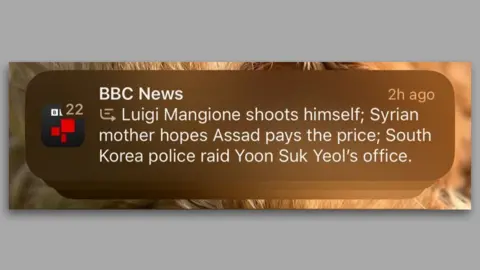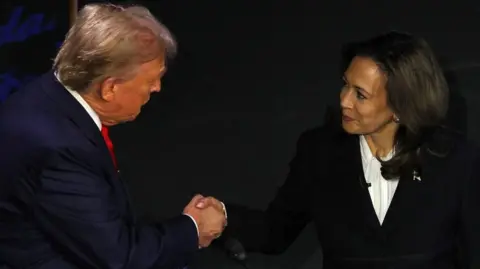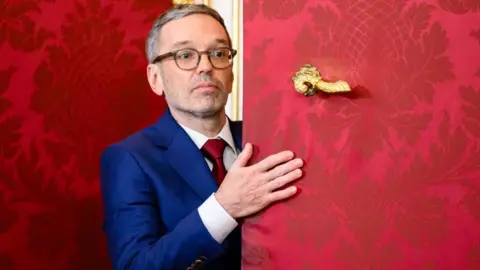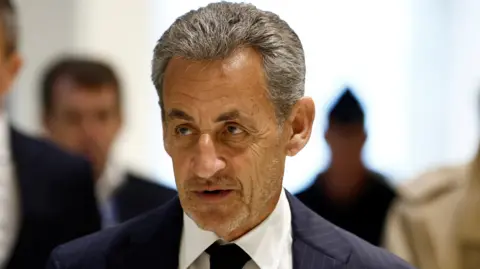'Stop shooting! My daughter is dead': Woman killed as West Bank power struggle rages

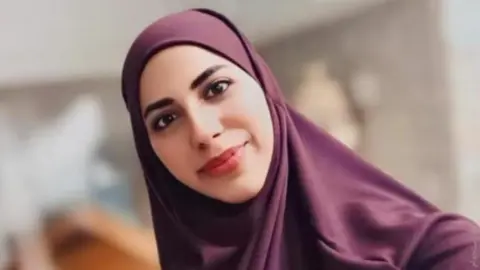 BBC
BBCWarning: This story contains distressing details.
Just before New Year, 21-year-old Shatha al-Sabbagh was out buying chocolate for her family's children from a shop in Jenin, in the occupied West Bank.
The "fearless" journalism student – who wanted to shed light on the suffering of the Palestinians – was with her mother, two young nephews and another relative.
"She was laughing and saying we'll be up all night tonight," her mother recalls.
Then she was shot in the head.
For Shatha's mother Umm al-Motassem, the pain is still raw. She stops to take a breath.
"Shatha's eyes were wide open. It looked like she was staring at me while lying on her back with blood gushing from her head.
"I started screaming, 'Stop shooting! My daughter is dead. My daughter is dead.'"
But the shooting lasted for around 10 minutes. Shatha died in a pool of her own blood.
Shatha's family holds the Palestinian Authority's (PA) security forces fully responsible for her killing, saying their area is controlled by the PA.
"It couldn't have been anyone other than PA... because they have such a heavy presence in our neighbourhood - no-one else could come or go," she told the BBC.
But the PA blames "outlaws" - the term they use for members of the Jenin Battalion, made up of fighters from armed groups including Palestinian Islamic Jihad (PIJ) and Hamas.
The PA exercises limited self-rule in the Israeli-occupied West Bank.
It launched a major security operation in the refugee camp in Jenin last month targeting the armed groups based there, which they see as a challenge to their authority. Nearly four weeks on, it continues.
The Jenin Battalion is accused of blowing up a car in the camp and carrying out other "illegal activities".
"We have confiscated large numbers of weapons and explosive materials," says the PA's Brig Gen Anwar Rajab.
"The aim is to clear the camp from the explosive devices that have been planted in different streets and alleyways... These outlaws have crossed all red lines and have spread chaos."
Gen Rajab also accuses Iran of backing and funding the armed groups in the camp.
The Jenin Battalion denies links to Iran. In a recent video posted on social media, spokesman Nour al-Bitar said the PA was trying to "demonise" them and "tarnish their image", adding that fighters would not give up their weapons.
"To the PA and President Mahmoud Abbas, why has it come to this?" he asked, holding shrapnel from what he claimed was a rocket-propelled grenade fired at the camp by security forces.

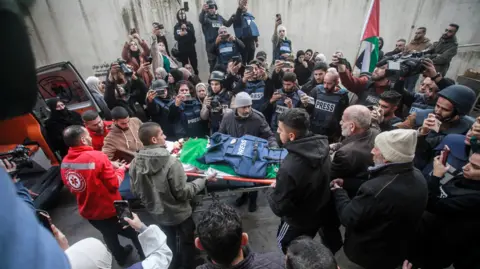 Getty Images
Getty ImagesThe PA, led by President Abbas, was already unpopular among Palestinians dissatisfied by its rejection of armed struggle and its security co-ordination with Israel.
This anger intensified with the PA's crackdown on the armed groups in the camp, which has been unprecedented in its ferocity and length.
Israel sees those groups as terrorists, but many Jenin locals consider them to be a form of resistance to the occupation.
"These 'outlaws' that the PA is referring to – these are the young men who stand up for us when the Israeli army raids our camp," says Umm al-Motassem.
At least 14 people have been killed in the crackdown, including a 14-year-old, according to the Palestinian health ministry.
Now many Jenin locals say they fear the PA as much as they fear Israel's military raids. Shatha al-Sabbagh's death has only renewed their contempt.
Before she was killed, Shatha shared several posts on social media showing the destruction from the PA operation in Jenin - as well as Israeli raids on the camp last year.
Other posts showed pictures of armed young men who were killed in the fighting, including her brother.
Her killing was condemned by Hamas, which identified her brother as a slain member of the group's armed wing, the Izzedine al-Qassam Brigades.
The group described her "murder... in cold blood" as part of an "oppressive policy targeting the Jenin camp, which has become a symbol of steadfastness and resistance".
Mustafa Barghouti, who leads the political party Palestinian National Initiative, sees the fighting in Jenin as a consequence of the divisions between the main Palestinian factions - Fatah, which makes up most of the PA, and Hamas, which has governed Gaza since 2007.
"The last thing Palestinians need is to see Palestinians shooting each other while Israel crushes everyone," he says.

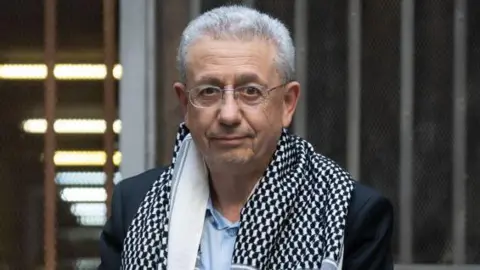 Getty Images
Getty ImagesInside the camp, residents say daily life has ground to a halt.
Water and electricity supplies have been cut off and families suffer from a lack of food, bitterly cold weather and relentless gun battles.
Locals who spoke to us asked for their names to be changed, saying they feared reprisals by the PA.
"Things are dire here. We can't move freely in the camp," says Mohamed.
"All the bakeries, the restaurants and shops are closed. The restaurant I work in opens for a day and closes for 10. When it is open, no-one comes.
"We need milk for the children, we need bread. Some people can't open their doors because of the continuous shooting."
The UN humanitarian agency, the OCHA, has called for an investigation into what it describes as human rights violations by the PA forces.
Gen Rajab said some of the "outlaws" who had "hijacked" the Jenin camp had been arrested and that others with pending cases would be brought to justice.
But Mohamed describes the PA's operation - with innocent people caught in the crossfire - as "collective punishment".
"If they want to go after outlaws, that doesn't mean they should punish the whole camp. We want our lives back."
Even going out to get food or water is a risk, says 20-year-old Sadaf.
"When we go out, we say our final prayers. We prepare ourselves mentally that we may not come back.
"It's very cold. We've taken down the doors in our home to use as firewood just to keep warm."
The BBC has heard similar accounts from four residents in the camp.
My conversation with Sadaf is interrupted by the sound of gunfire. It is unclear where it is from or who is firing. It starts and stops several times.
"Warning shots maybe," she suggests, adding it happens sometimes when PA forces are changing shifts.
Sadaf continues describing the camp, with "rubbish filling the streets and almost going into homes". More gunfire can be heard.
Sadaf's mother joins the call. "Listen to this... Can anyone sleep with this sound in the background?
"We sleep in shifts now. We're so scared they might raid our homes. We're as scared of this operation as we are when the Israeli soldiers are here."
People say security forces have deliberately hit electricity grids and generators, leaving the camp in a blackout.
The PA again blames "outlaws" - and insists it has brought in workers to fix the grid.

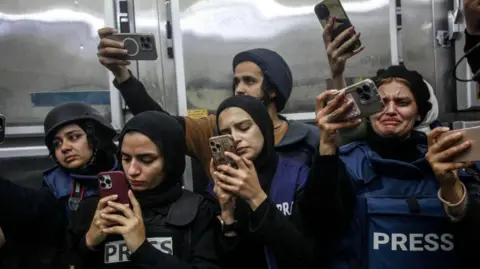 Getty Images
Getty ImagesThe armed groups want to "use the people's suffering to pressure the PA to stop the operation", says Gen Rajab. He says the security operation will continue until its objectives are met.
Gen Rajab says the PA's goal is to establish control over the Jenin camp and ensure safety and stability.
He believes stripping the armed groups of control would take away Israel's excuse to attack the camp.
In late August, the Israeli army conducted a major nine-day "counter-terrorism" operation in Jenin city and the camp, which resulted in severe destruction.
At least 36 Palestinians were killed - 21 from Jenin governorate - according to the Palestinian health ministry.
Analysts say that the PA is trying to reassert its authority in the West Bank and show the US it is capable of taking a role in the future governance of Gaza.
"What would be the harm in that?" says Gen Rajab.
"Gaza is part of the Palestinian state. Gaza and the West Bank are not separate entities. There's no Palestinian state without Gaza. The president [Mahmoud Abbas] has said that and that is our strategy."
But Barghouti says this approach is an "illusion". "All you need is to listen to what [Benjamin] Netanyahu says," he adds.
Under the Israeli prime minister's vision for a post-war Gaza, Israel would control security indefinitely, and Palestinians with "no links to groups hostile to Israel" - so none of the existing major Palestinian political parties - would run the territory.
But the US, Israel's major ally, wants the PA to govern Gaza after the war. Netanyahu has previously ruled out a post-war role for the internationally backed PA.
For the residents of Jenin camp, there has been no let-up in the violence and loss.
"The PA say they're here for our safety. Where's the safety when my daughter was killed? Where's the safety with the non-stop shooting?" Umm al-Motassem cries.
"They can go after the 'outlaws' but why did my daughter have to die? Justice will be served when I know who killed my daughter," she says.
